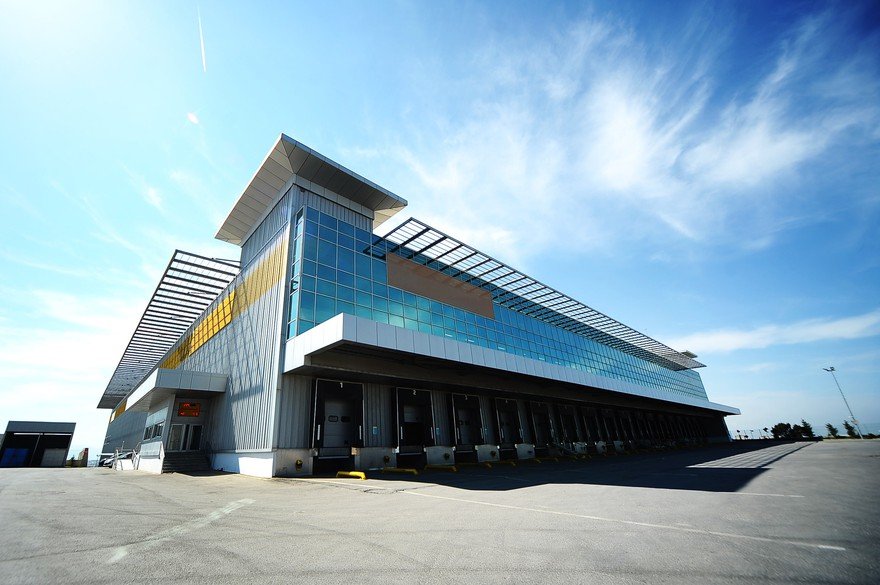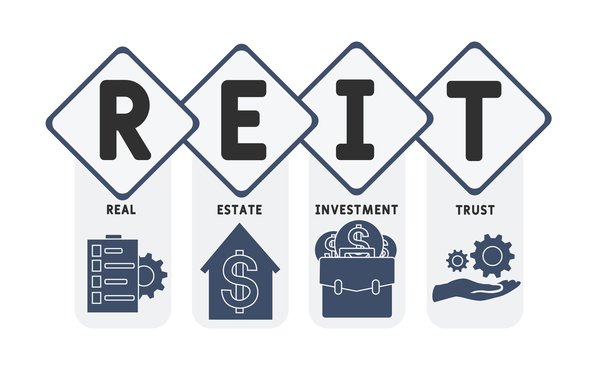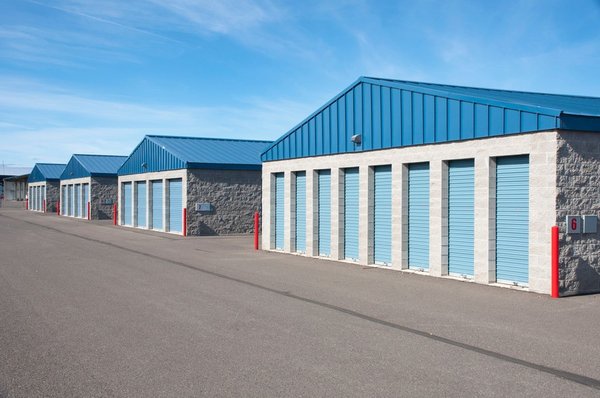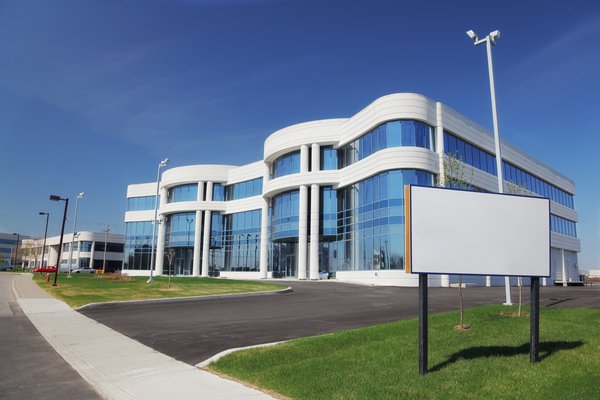Industrial real estate investment trusts (REITs) own properties crucial to the industrial sector. Manufacturing and logistics companies are increasingly finding they don't need to own their real estate. That's opening the door for industrial REITs to own more properties and helping to drive their growth.
Here's a closer look at the industrial REIT sector, including its advantages and risks, and some industrial REITs worth considering.

Understanding industrial REITs
Industrial companies use many different types of real estate to develop, manufacture, or produce goods and products. They require specialized real estate to support the movement and storage of products and goods. Properties in the sector include:
- Light manufacturing facilities.
- Food manufacturing facilities.
- Temperature-controlled warehouses (e.g., cold-storage facilities).
- Growing facilities and other properties for medical-use cannabis.
- Flex/office space, meaning a combination of office and industrial space like a warehouse or light manufacturing.
- Logistics properties such as warehouses and fulfillment centers.
Industrial REITs lease these properties to tenants under long-term contracts, some as long as 25 years. They'll often rent an entire industrial building to one tenant under a triple net lease structure, making the tenant responsible for covering building insurance, real estate taxes, and maintenance. The agreements supply the REIT with steady cash flow.
Advantages of investing in industrial REITs
Industrial REITs benefit from several significant demand drivers that were accelerated by the COVID-19 pandemic. Rising online sales are increasing the need for more warehouse space. Meanwhile, supply chain issues are leading many industrial companies to lease more warehouse space to store additional inventory. Many companies are also bringing manufacturing back to the U.S. because of supply chain issues and other factors. These demand tailwinds drive up occupancy and rental rates while providing industrial REITs with significant expansion opportunities.
Industrial REITs also tend to generate steadier cash flow than other REITs. Their focus on long-term triple net leases makes the sector relatively recession-resistant and keeps operating costs down compared to other types of commercial real estate.
Risks of investing in industrial REITs
The industrial real estate industry needs to build significant capacity in the coming years to support rising demand. However, the sector runs the risk of overbuilding. Most industrial REITs develop new properties on speculation or without securing a tenant before starting construction. They believe they'll sign a lease before completion. Problems arise if developers build too much speculative capacity in certain markets, which can cause occupancy levels and rental rates to decline.
Industrial REITs also face two risks common to all REITs: interest rates and financing risks. Rising interest rates can drive up a REIT's expenses if they have floating rate debt or significant upcoming maturities.
Higher interest rates can also make it harder for a REIT to finance its operations. If rates rise too much, it can be too expensive for a REIT to fund expansions such as acquisitions and development projects.
Meanwhile, rising interest rates can also weigh on REIT stock prices. Rising rates increase the income yield on lower-risk options such as bonds. As a result, the dividend yield on REITs needs to rise (which happens as their share prices decline) to compensate investors for their higher risk level.
5 industrial REITs to consider in 2024
According to the National Association of Real Estate Investment Trusts (NAREIT), there were 15 publicly traded REITs in early 2022. Here are a few interesting ones for investors to consider:
| Industrial REIT | Ticker Symbol | Market Cap | Company Description |
|---|---|---|---|
| Prologis | (NYSE:PLD) | $117.5 billion | A global leader in logistics real estate. |
| Americold Realty Trust | (NYSE:COLD) | $7.1 billion | The only pure-play REIT on cold storage. |
| STAG Industrial | (NYSE:STAG) | $7.3 billion | A diversified industrial REIT. |
| Innovative Industrial Properties | (NYSE:IIPR) | $5.1 billion | An industrial REIT focused on medical-use cannabis real estate. |
| PS Business Parks | (NYSE:PSB) | $4.4 billion | An industrial REIT focused on business parks. |
1. Prologis
Prologis is the largest industrial REIT by a wide margin and one of the largest REITs overall. At the end of 2021, the company had investments in almost 4,700 buildings encompassing almost 1 billion square feet of space leased to about 5,800 tenants. The company has a global logistics business, with operations in 19 countries.
Prologis stands out from other logistics-focused industrial REITs. It has a global reach; most rivals typically emphasize the U.S. market. Prologis also has an investment management platform, enabling it to earn management fees in addition to rental income. Finally, it has a global development platform, which enhances its growth prospects. These differences have enabled Prologis to grow faster than other logistics REITs over the years.
2. Americold Realty Trust
Americold Realty Trust is the first publicly traded REIT focused on cold storage properties. As of early 2022, the company owned and operated more than 250 temperature-controlled warehouses with more than 1.5 billion cubic feet of storage worldwide. Americold leases space in its facilities to food manufacturers, distributors, and retailers. The REIT also manages third-party-owned facilities and provides transportation services.
Americold has been a serial acquirer, enabling it to build the world's second-largest portfolio of temperature-controlled warehouses. However, that strategy has backfired in recent years, causing Americold to underperform. The company's problems led it to make a change at the top by naming a new CEO in early 2022 to get things back on track.
3. STAG Industrial
STAG Industrial owns a diversified portfolio of industrial real estate. It had more than 500 buildings exceeding 100 million square feet of space in early 2022, including warehouses, light manufacturing, and flex/office space. It leases its buildings to single tenants under triple net leases. STAG is also highly diversified by tenant, market, and industry.
Aside from its diversification, two factors make STAG stand out from other REITs. First, it's one of the few REITs that pay a monthly dividend. Meanwhile, it doesn't have a development platform. Instead, the REIT primarily grows by acquiring additional properties. It purchases many new properties with the intention of adding value through leasing, expansion, and development opportunities.
4. Innovative Industrial Properties
Innovative Industrial Properties focuses on owning specialized industrial properties leased to state-licensed cannabis operators. As of early 2022, the company owned more than 100 properties with 7.9 million square feet of space across 19 states, including 2.4 million square feet under development or redevelopment.
Innovative Industrial Properties helps provide capital to the cannabis sector. It completes sale-leaseback transactions to acquire dispensaries, cultivation facilities, processing facilities, manufacturing facilities, and other properties that it leases back to regulated operators, giving them the capital to continue expanding their operations.
5. PS Business Parks
PS Business Parks owned 97 properties with more than 28 million square feet of space in a dozen top U.S. markets as of early 2022. Its properties primarily consist of multi-tenant industrial, flex, and office space located in business parks. It leases space to more than 5,000 tenants, focusing on providing smaller businesses with the space they need to grow.
PS Business Parks expands by acquiring industrial buildings. It will opportunistically develop them on non-income producing land inside its existing business parks. The company has also started developing multifamily units at one of its business parks and had 800 apartments built or under construction. The REIT finances its growth by recycling capital, selling lower-growth properties to reinvest the capital into more attractive opportunities.
Related investing topics
Many different industrial REIT options
Industrial real estate covers a lot of ground. Because of that, many industrial REITs focus on a specific property type. That gives investors a wide variety of ways to invest in the sector.



































